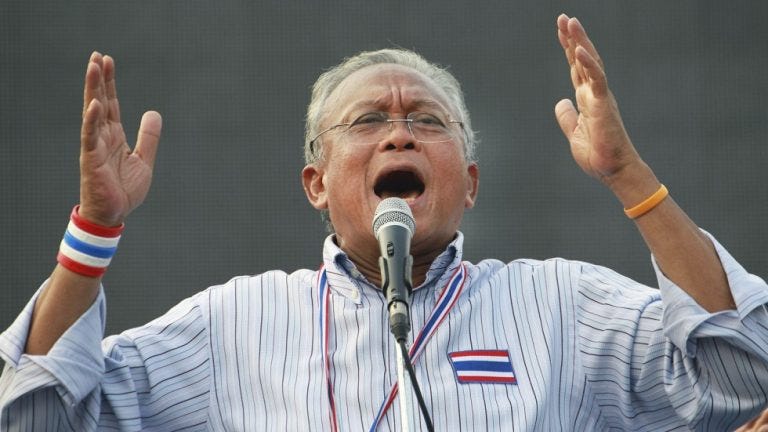Thaksin: The Thai Monarchy’s Savior?
Only if the opposition led by Suthep continues in its attempt to destroy it
Could Thaksin Shinawatra become the savior of the Thai monarchy? It may seem a ridiculous question at a time when the Bangkok elite of ultra-royalists continues to accuse the former prime minister and his sister, the current prime minister Yingluck Shinawatra, of undermining that institution to increase his own influence.
But the extrem…
Keep reading with a 7-day free trial
Subscribe to Asia Sentinel to keep reading this post and get 7 days of free access to the full post archives.

